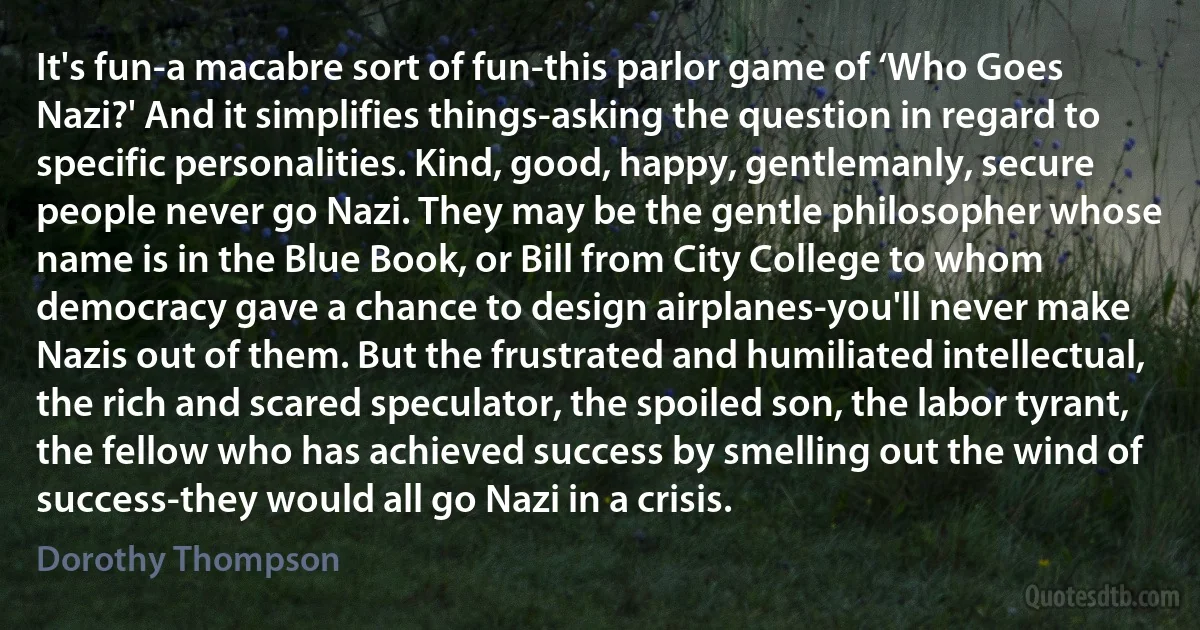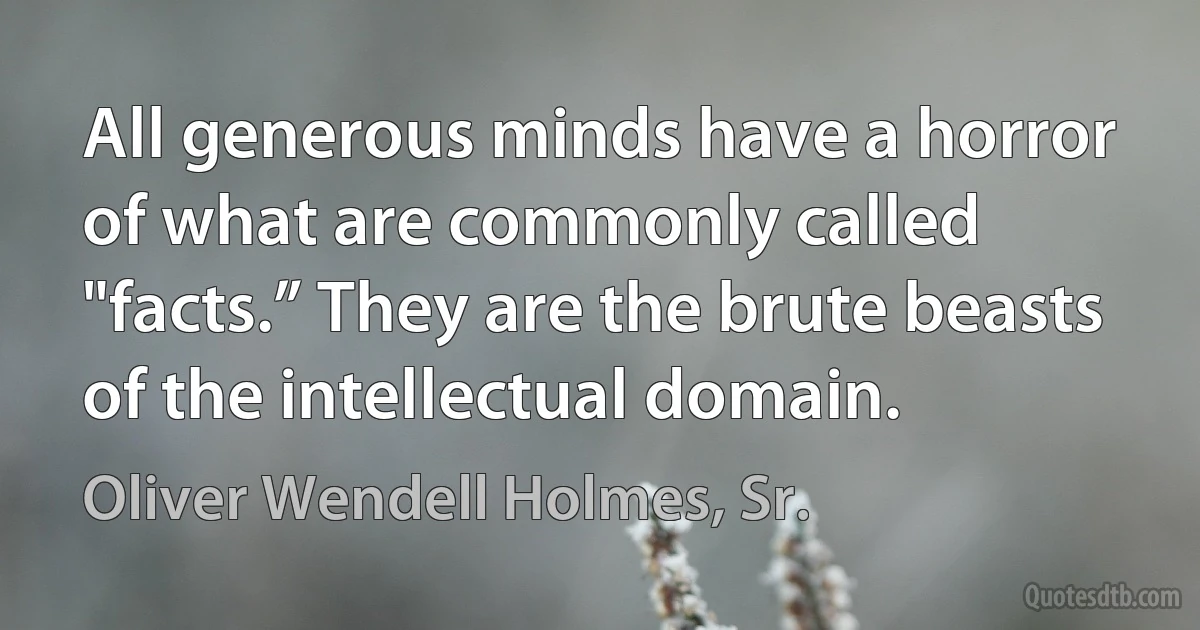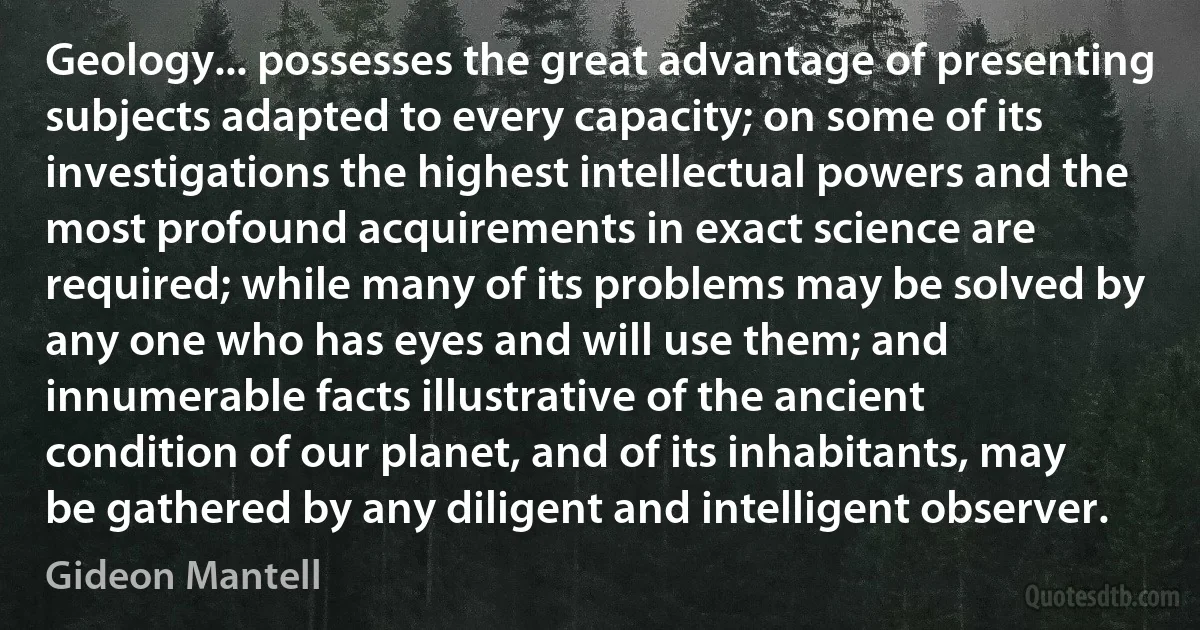Intellectual Quotes - page 78
In that very hour he became overjoyed in the holy spirit and said: "I publicly praise you, Father, Lord of heaven and earth, because you have carefully hidden these things from wise and intellectual ones and have revealed them to young children. Yes, O Father, because this is the way you approved.

Jesus Christ
His brilliant discoveries the man of science regards as his peculiar property; the means by which they were made, and the development of his intellectual character, belong to the logician and to the philosopher; but the triumphs and the reverses of his eventful life must be claimed for our common nature, as a source of more than ordinary instruction.

Galileo Galilei
As a father, as a girl dad, the portrayal of women in Black Panther is almost certainly what I admired the most, from the chief technology officer to even the baddest person on the film, who to me was the general, who was my favorite character and certainly my wife's favorite character. But then also, I just want to again emphasize that this is possible. We currently have a tech industry where women and particularly women of color are far and away underrepresented or imagine that it's not their place or imagine that they don't have the intellectual capacity. And these are all sexist and racist lies. And women, particularly women of color, can be the chief technology officer of the baddest place, I should say the most technologically advanced sort of companies or places on earth. That's possible, if we can create that type of sort of society.

Ibram X. Kendi
Every politically significant revolution is anticipated by a transformation of the intellectual landscape. The European upheavals of the 1980s were no exception. The economic crisis of the early Seventies undermined the optimism of Western Europe's post-war decades, fracturing conventional political parties and propelling unfamiliar issues to the center of public debate. Political argument on both sides of the Cold War divide was breaking decisively with decades of encrusted mental habits-and, with unexpected speed, forming new ones. For better and for worse, a new realism was being born.

Tony Judt
In some sense it is my story, too. I grew up and read and became a historian and, I like to think, an intellectual. The Jewish question was never at the center of my own intellectual life, or indeed my historical work. But it intrudes, inevitably, and with ever greater force. One of the aims of this book is to allow such themes to encounter each other, to permit the intellectual history of the twentieth century to meet the history of the Jews. This is a personal as well as a scholarly effort: after all, many of us who have, in our work, kept these themes distinct are ourselves Jews.

Tony Judt
"What madman, or what clever-dick with the instincts of a counterfeiter was the first to paint a sphere in trompe l'oeil on a surface that is vertical and rigorously flat! And that's what they teach at the Beaux-Arts [academy]! How could such idiocies ever have survived the verdict of Pascal?" [quote of Albert Gleizes ]. That was how, in 1906, Albert Gleizes was feeling his way towards Cubism and condemned in advance those who never saw anything in it other than a shibboleth [mot d'ordre]. It was still nothing more than a need he felt, the need not for an intellectual art but for an art that would be something other than a systematic absurdity. Quite clearly nature and the painting make up two different worlds which have nothing in common, and what is quite in its place in the one cannot also be in its place in the other.

Jean Metzinger
Man himself is exalted, and paradoxical though it may seem to be, this means the crushing of man. Man's enslavement is the reverse side of the glory, value, and importance that are ascribed to him. The more a society magnifies human greatness, the more one will see men alienated, enslaved, imprisoned, and tortured, in it. Humanism prepares the ground for the anti-human. We do not say that this is an intellectual paradox. All one need do is read history. Men have never been so oppressed as in societies which set man at the pinnacle of values and exalt his greatness or make him the measure of all things. For in such societies freedom is detached from its purpose, which is, we affirm, the glory of God.

Jacques Ellul
Neither Montaigne in writing his essays, nor DesCartes in building new worlds, nor Burnet in framing an antedeluvian earth, no nor Newton in discovering and establishing the true laws of nature on experiment and a sublimer geometry, felt more intellectual joys; than he feels who is a real patriot, who bends all the force of his understanding, and directs all his thoughts and actions, to the good of his country.

Henry St John, 1st Viscount Bolingbroke
Enoch Powell was unique in the absolutism of the intellectual and moral propositions on which he based his arguments. When he was Professor of Greek at Sydney his colleagues used to call him "the textual pervert”. He built glass towers of dazzling logical integrity, whose foundations in the real world became more and more precarious as they rose higher and higher. In politics as in life, a logical conclusion is usually a reduction ad absurdum.

Enoch Powell
The collective wisdom and the collective will of the nation resides not in any little Whitehall clique but in the whole mass of the people-in the producers, listening to the voice of the customer at home and abroad; in the savers and investors, using their eyes and their brains to lay out their resources to best advantage; in the consumers themselves, expressing through all the complex nervous system of the market their wishes, their needs, their expectations. In short, the true national economic plan is being made all the time by the very people and institutions which the intellectual arrogance of the Socialist affects to despise. "Under Tory free enterprise" says Labour's policy, "no limit is set to the amount of our national resources and intellectual talent consumed by the popular newspaper, the glossy magazine, the cinema, commercial television and the advertising industry." What a world of contempt for the ordinary man and woman breathes in that haughty sentence!

Enoch Powell
Enoch was right. He had made the two intellectual leaps in economic policy which Keith Joseph and I would only make some years later. First, he had grasped that it was not the unions which caused inflation by pushing up wages, but rather the Government which did so by increasing the supply of money in the economy. Consequently, incomes policies...were a supreme irrelevance to anti-inflation policy. The only aspect of the matter which Enoch then and later failed sufficiently to grasp was the importance of the indirect link between trade union power and inflation. This lay in the fact that over-powerful trade unions priced their own members out of jobs, and inflicted unemployment on both union and non-union workers alike. Governments...would then react by lowering interest rates and expanding the money supply. This would increase demand and jobs for a time, but it also increased inflation... That said, Enoch's insight into the cause of inflation was of supreme importance.

Enoch Powell
Each generation imagines itself to be more intelligent than the one that went before it, and wiser than the one that comes after it. This is an illusion, and one should recognise it as such, but one ought also to stick to one's own world-view, even at the price of seeming old-fashioned: for that world-view springs out of experiences that the younger generation has not had, and to abandon it is to kill one's intellectual roots.

George Orwell
The interesting thing about irony for me is that real irony is far more sincere than earnestness. To accept the absurdity of a situation is to accept the humanness of it. Utter sincerity suggests a kind of belief that one knows all there is to know about a given circumstance. That is not to say that one should ever make light of serious and grave and important issues, but that open and genuine intellectual curiosity should never be a casualty in any situation. Irony is not always funny. Humor is not always ironic.

Percival Everett
The instinctive foundation of the intellectual life is curiosity, which is found among animals in its elementary forms. Intelligence demands an alert curiosity, but it must be of a certain kind. The sort that leads village neighbours to try to peer through curtains after dark has no very high value. The widespread interest in gossip is inspired, not by a love of knowledge but by malice: no one gossips about other people's secret virtues, but only about their secret vices. Accordingly most gossip is untrue, but care is taken not to verify it. Our neighbour's sins, like the consolations of religion, are so agreeable that we do not stop to scrutinise the evidence closely.

Bertrand Russell
It is in this situation that political partisanship can serve to counteract the increasing tendency to look inwards, in extreme instances the scholiasm, the tendency to develop intellectual ingenuity for its own sake, the self-insulation of the academy. It may indeed fall victim to the same dangers itself, if a sufficiently large 'field' of a self-insulated partisan scholarship develops.

Eric Hobsbawm
We never know the whole man, though sometimes, in quick flashes, we know the true man. I think, myself, that one's memories represent those moments which, insignificant as they may seem, nevertheless represent the inner self and oneself as most really oneself.
I am today the same person as that solemn little girl with pale flaxen sausage-curls. The house in which the spirit dwells, grows, develops instincts and tastes and emotions and intellectual capacities, but I myself, the true Agatha, am the same. I do not know the whole Agatha.
The whole Agatha, so I believe, is known only to God.

Agatha Christie
‘Arrey bhai, but why don't you write on Hindu fatwas?,'-that from a prominent intellectual who carries a haloed name. There is nothing like the fatwa among Hindus-but surely even our intellectuals know that. The point of such admonitions is different. In this view of the matter, a Hindu should stay clear of writing on Islam. Rather, that if he writes about matters Islamic or Muslim, he should only pen Hosannas-'the religion of tolerance, equality...'-he should only write books ‘understanding', that is explaining away the ‘Muslim mind'. At the least, if he just has to allude to some unfortunate drawback in it, he must attribute it to some special time and place and exculpate Islam from it! Even more important, he must make sure that he ‘balances' his remark about that point in Islam with denunciation about something in Hinduism, anything-the caste system, dowry deaths, looking upon foreigners as malechh, at least sati if nothing else fits the bill!

Arun Shourie
Some of Spinoza's ideas are part and parcel of our culture, but to the best of my knowledge Spinoza is absent as a reference from the modern efforts to understand the biology of the mind. This absence is interesting in itself. Spinoza is a thinker far more famous than known. Sometimes Spinoza appears to rise out of nothing, in solitary and unexplained splendor, although the impression is false-in spite of his originality he is very much a part of his intellectual times. And he appears to dissolve as abruptly, without succession-another false impression given that the essence of some of his forbidden proposals can be found behind the Enlightenment and well beyond in the century that followed his death.

Baruch Spinoza



